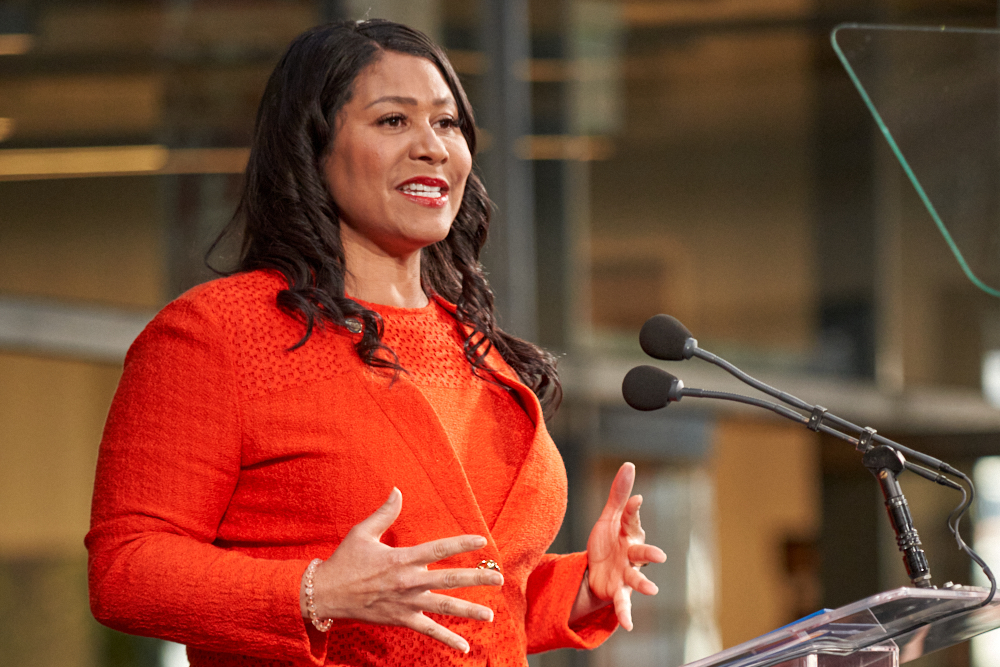Mayor London Breed doubled down on her new arrest-based approach to the opioid crisis in the Tenderloin, telling the supes that she is not going to open a safe-injection site or wellness center, and that she intends to use the cops to at times force people into drug treatment.

In a testy exchange with Sup. Dean Preston Tuesday, Breed said she didn’t care if her own health department says that arrests of drug users are not effective and that incarceration increases the risk of overdose deaths.
The Health Department report notes:
Without increasing the social supports provided to people who use drugs, outreach and engagement will have limited success and the risk of overdose will remain high. This is particularly true in Black, brown and indigenous communities who have been deeply harmed by racist drug policies.
After complaining about a “phony Question Time back and forth,” Breed said: “No matter what you see or read in a report, it’s not just about services.” She said that many of the people the cops have arrested for drug use in the past few days have refused services, and that “we need to make arrests … and sometimes force people into treatment.”
That directly contradicts the best of longtime substance-abuse counselors like Vitka Eisen, who runs Healthright 360. From an Eisen oped in the Chron on the Tenderloin Wellness center that Breed shut down:
Some, no doubt, consider the center a failure for not pushing a greater volume of users into treatment. But as someone who has worked in the field for decades, I can assure you that lasting recovery can’t be rushed or forced. Building trust and relationships is foundational for behavioral change; it enables people to think differently and begin to take positive steps to improve their health. That doesn’t happen overnight. And people have to stay alive to get there.
I know our efforts at the center made some people in San Francisco angry — people who think that drug use must be punished, people who think that drug users must be shamed into some mythical bottom, people who think illicit drug users should be sent to jail. But California has spent decades trying to police, punish and shame people into treatment. It didn’t work.
If we want different results, we must be willing to do some things differently.
Breed talked about how she and the supes should “be adults” and have these discussions in private meetings.
But the point of Question Time is to force the mayor and the supes to have these discussions in public. Since former Sup. Chris Daly started this years ago, the supes have been frustrated with a series of mayors who didn’t want any public debate on their policy priorities.
Breed doesn’t like the process. Neither did Gavin Newsom or Ed Lee, who did their best to undermine Question Time. Too bad. The mayor of San Francisco has tremendous power over the city, and it’s way too easy for mayors to decline press interviews, refuse to talk to reporters they don’t like (see: me, going back to Dianne Feinstein), and avoid public accountability.
Question Time is a small, once a month, chance for us all to see how the two branches of government are operating together (or not).
In public.




